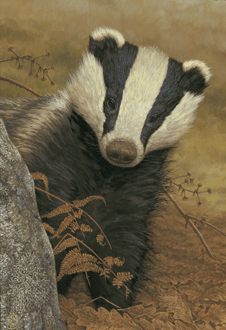 I have put together a rough and ready web page to summarise research on code/space I am doing with Rob Kitchin.
I have put together a rough and ready web page to summarise research on code/space I am doing with Rob Kitchin.
Wednesday, January 30, 2008
 I have put together a rough and ready web page to summarise research on code/space I am doing with Rob Kitchin.
I have put together a rough and ready web page to summarise research on code/space I am doing with Rob Kitchin.
Friday, January 25, 2008
 Reclaiming the map: British Geography and ambivalent cartographic practice
Reclaiming the map: British Geography and ambivalent cartographic practiceA revised version of the 'rant' I have co-written with Chris Perkins on the state of mapping in relation to academic geography in the UK has been re-submitted to Transactions for inclusion as a 'boundary crossings' commentary. Fingers crossed it gets accepted.
Sunday, January 20, 2008
 Hi, I have just taken on co-owner responsibility for the Crit-Geog-Forum mailing list, an important discussion space in human geography. The list has over 1300 subscribers and is quite active.
Hi, I have just taken on co-owner responsibility for the Crit-Geog-Forum mailing list, an important discussion space in human geography. The list has over 1300 subscribers and is quite active.
Wednesday, January 16, 2008
My edited book Geographic Visualization is getting nearer completion. We are just doing the final page proofs now. Here is the latest table of contents.
Tuesday, January 15, 2008

Hi, I am co-organising a session for RGS-IBG this summer on maps as method. Details in the cfp below.
http://personalpages.manchester.ac.uk/staff/m.dodge/maps_as_method_cfp.pdf
Call for papers - The Royal Geographical Society / Institute of British Geographers Annual Conference, London. 27-29 August, 2008.
Session: Maps as Method
Session convenors: Chris Perkins and Martin Dodge (University of Manchester)
Context:
There remains a widespread public impression that we work with maps continuously, that cartography is somehow defining of geographical methods for knowing the world. Yet it is apparent that many geographers do not feel at home working through the map. Across a range of geographical practices - be it research, publishing, or teaching - many, and perhaps the majority, of geographers do not see the need to make and use maps. The lack of map use has been well noted in the discipline over the last couple of decades (Wheeler 1998; Martin 2000). Moreover, British Geography’s seems largely disassociated from newly-significant approaches to the visual representation of space, and spatial practices, that are blossoming in wider social contexts and particularly online.
The goal of this session is to challenge the inexorable decline in map use by demonstrating the capabilities of geographers and others to work creatively through cartography. The aim being to foster a theoretically informed discussion around the different ways maps have been, are being or could be employed in geographical research, and learning and teaching. Importantly, we want to bring together scholars working across the discipline, encourage dialogue between physical and human geographers, and linking up of theoretical ideas with practical experiences to reveal real potential of maps to advance geographical praxis. We would also encourage participation from those working in more applied policy arenas, along with those engaging new technologies (such as the Web or mobile tracking) directly in their academic practices. Ultimately, we hope to show how maps can make a positive difference to what we do and, perhaps, show that the public perception of geographers working through maps is not so confining after all.
Suggested themes that show the renewed vigour of ‘maps as method’:
- maps as a participatory method that can draw in different stakeholders
- maps as a collaborative method linking co-workers
- maps as an insightful contribution to new theory
- maps as creative and playful methods
- maps as artistic methods able to beckon forth beauty
- maps as new ways to see the world (integrating new sensing and imaging technologies)
- maps as interactive method learning from the map hackers and geowankers)
The session will also be supported by the new ‘Maps and Society’ commission of the International Cartographic Association.
If you are interested in contributing a paper to the session please email a title and short abstract (maximum of 250 words) to Martin Dodge (m.dodge@manchester.ac.uk) or Chris Perkins (c.perkins@manchester.ac.uk) by 31st January 2008.
Labels: map folding
Over the past few months I have been mapping Glossop with my GPS and contributing the data to the OpenStreetMap project. The coverage is getting better and I have the most of major roads mapped, but still a fair amount of other contextual stuff left to do, including rivers, points of interests and land use.

Bits of mapping for neighbouring town of Hadfield have also been done by myself, along with another OSM user 'ericthefish'. Many of the other villages around Glossop are also largely blank at the moment, so there is still plenty more to do.

Bits of mapping for neighbouring town of Hadfield have also been done by myself, along with another OSM user 'ericthefish'. Many of the other villages around Glossop are also largely blank at the moment, so there is still plenty more to do.
 Cyber Badger Research Blog
Cyber Badger Research Blog

